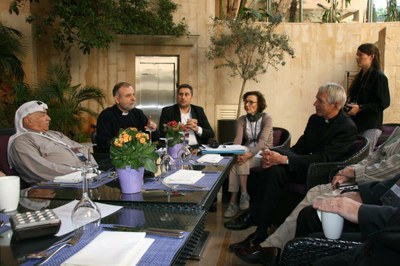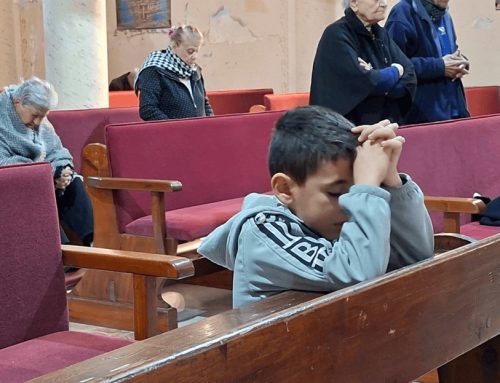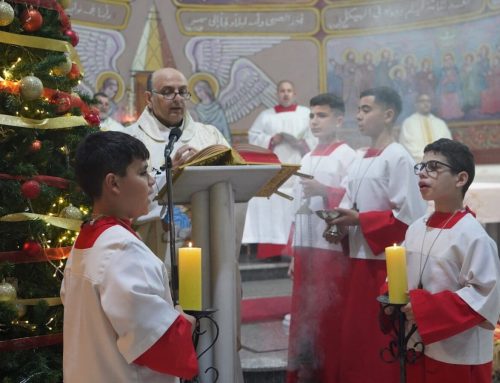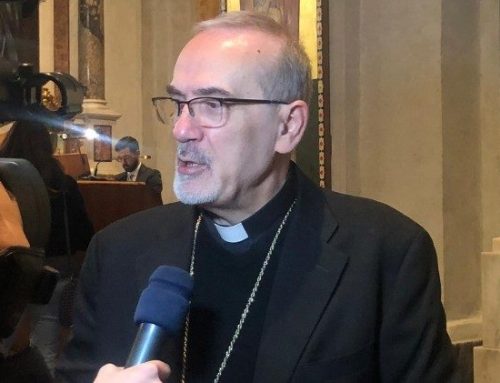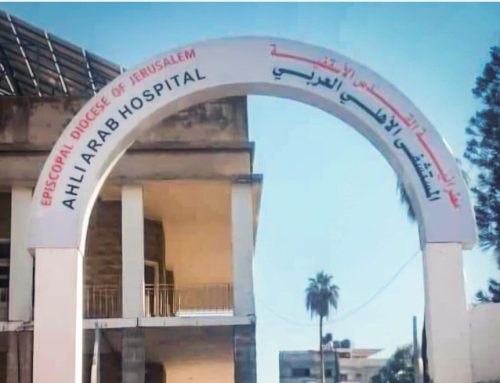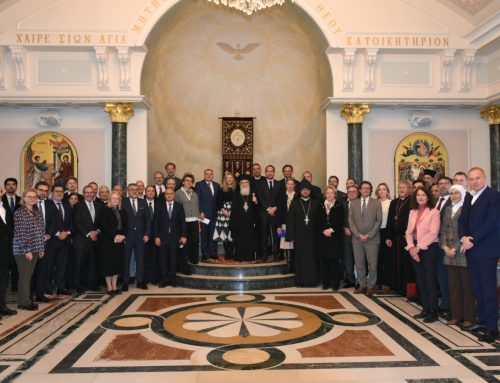The ecumenical dialogue between churches has a long and fruitful history. But since war and terrorism are threatening the existence of churches in the Middle East, Christians of this region feel more and more neglected by their Western partners.
The emotional outcry of a pastor serving in Aleppo came on the second day of a conference on East-West dialogue. “I want to see some action plans, not only analysis”, Haroutune Selimian, pastor of the Armenian-Evangelical Bethel Church, said during a session on bridge building between the East and the West.
A church representative from Germany had just before spoken about the Western perspective on the Christian presence in the Middle East and how difficult it is to tackle this issue in Western societies. However, Selimian couldn’t contain himself any longer. His parish in war-torn Aleppo is almost under attack almost daily from rebels. His church has lost more than two-thirds of its members during the last years, either by death or by migration.
“We are living in a war; people are crying out for help. They need direction, not only material help. We need Christians who are in real fellowship with us. And this doesn’t mean to open your doors and to empty our country.”
Within one minute, Selimian had summarized the two main criticisms of Middle East Christians towards their Western partners: that they aren’t aware enough of the existential crisis the churches in the East are experiencing; and that the so-called open-door policy for refugees in Europe and especially in Germany is facilitating the emigration of those who are badly needed to work on peace and reconciliation.
Since the war in Syria and the rise of ISIS in Iraq and other areas, delegates from western churches and aid organizations are more often confronted with the disappointment of their brothers and sisters in the Middle East. “We haven’t seen action after Western politicians and churches had expressed their concern”, says Bishop Munib Younan of the Evangelical-Lutheran Church in Jordan and the Holy Land. “We often hear Western church leaders asking us: ‘What can we do for you?’ Aren’t they aware that this is a paternalistic approach which in addition separates us naively from our Muslim neighbours? We expect that our partners in the world stand with us as our brothers and sisters.”
But what does this mean in times of crisis and unrest? Many Western churches and aid organizations are financially supporting Christian projects in the region. However, Middle Eastern Christians still feel neglected.
Archbishop Gabriele Caccia, who is the Apostolic Nuncio to Lebanon and who has been living for decades in the Middle East, sees misunderstandings and frustration on both sides. “In the churches in the West one may find a kind of ‘allergy’ not to privilege one group”, he says. “In the East, however, the Christians don’t understand what the Christians in the West are doing. When Western churches help everyone, they feel neglected. They argue that the suffering Muslims in the region are supported by other states who only support Muslims.”
The other side, the West, doesn’t understand the frustration. “You knock at the door of the West and they don’t understand why you knock at that door.”
For Caccia, the big problem between the East and the West is not the so-called clash of civilizations. “There is a clash of ignorance on both sides. Basic stereotypes dominate the mutual perception”, Caccia says. “But we can’t go out of this crisis alone. We are all united, Christians and Muslims, Easterners and Westerners, and we must all bring back into the focus the centrality of the human being.”
For this strong bridges are more needed than ever. Paul Haidostian, president of the Evangelical Armenian Haigazian University in Beirut, explains via the symbol of a bridge the meaning of partnership. “For bridges to be effective the foundation has to be solid. On both sides the pillars must be strong. The stronger the pillars are, the stronger and more long-lasting a bridge is”, he says. “But bridging is only fruitful when one is crossing the bridge. Partnership means to put yourself in the shoes of the other. If not, it doesn’t work.”
Source: World Council of Churches

